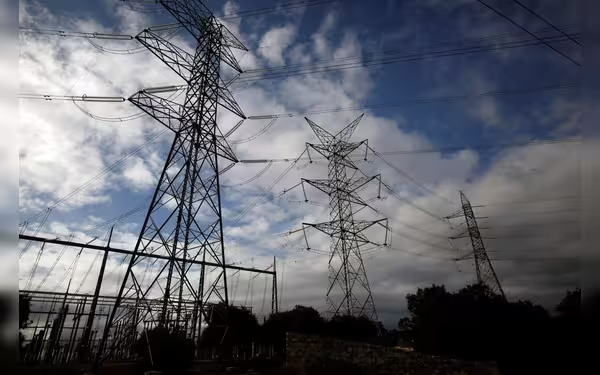Thursday, November 7, 2024 07:44 PM
Adani Reduces Electricity Exports to Bangladesh Amid Payment Crisis
- Adani cuts electricity exports due to unpaid bills.
- Bangladesh faces severe energy crisis and load shedding.
- Power officials seek to increase local electricity production.
 Image Credits: menafn
Image Credits: menafnAdani reduces electricity exports to Bangladesh due to unpaid bills, leading to a severe energy crisis and increased load shedding.
In a significant development affecting energy supply in Bangladesh, the Indian conglomerate Adani has announced a drastic reduction in its electricity exports to the country. This decision comes in response to approximately $850 million in unpaid bills owed by Bangladesh. As a result, power officials in Dhaka are now racing against time to increase local electricity production to prevent widespread blackouts.
Adani's coal-fired Godda plant, located in Jharkhand, India, has been a crucial source of power for Bangladesh, typically supplying between seven to ten percent of the nation’s baseload power demand, which stands at around 13 gigawatts (GW). However, the situation has become dire, as Adani warned Bangladesh in September about the unsustainable nature of the current payment delays. The company emphasized that it was fulfilling its supply commitments while also managing obligations to its lenders and suppliers, despite the growing receivables.
Bangladesh, home to approximately 170 million people, is currently grappling with a foreign currency crisis that complicates its ability to settle these debts. The political landscape has also shifted dramatically following a student-led revolution in August that resulted in the ousting of the former autocratic leader, Sheikh Hasina, who had maintained a close relationship with India.
Rezaul Karim, the chairman of the state-run Bangladesh Power Development Board (BPDB), stated, "We are discussing the issue with them (Adani) and informed them that it is not possible to make the total payment in a single month." He further added, "But we are trying to increase the payment size gradually." In October, Bangladesh managed to pay $97 million to Adani, which was noted to be higher than the payments made in the previous three months.
As the weather cools in November, electricity demand typically decreases, providing a slight reprieve for the energy sector. However, the current situation remains precarious. On a recent Friday, Adani's Godda plant was only able to supply 724 megawatts, significantly below its installed capacity of 1,496 megawatts. Meanwhile, Bangladesh is facing around 1,680 megawatts of load shedding, further exacerbating the energy crisis.
In addition to the power supplied by Adani, Bangladesh also imports 1,160 megawatts from the Indian states of West Bengal and Tripura. The ongoing energy supply issues highlight the delicate balance of international energy trade and the potential consequences of financial disputes. As Bangladesh navigates these challenges, the focus will be on finding sustainable solutions to ensure a stable power supply for its citizens.













